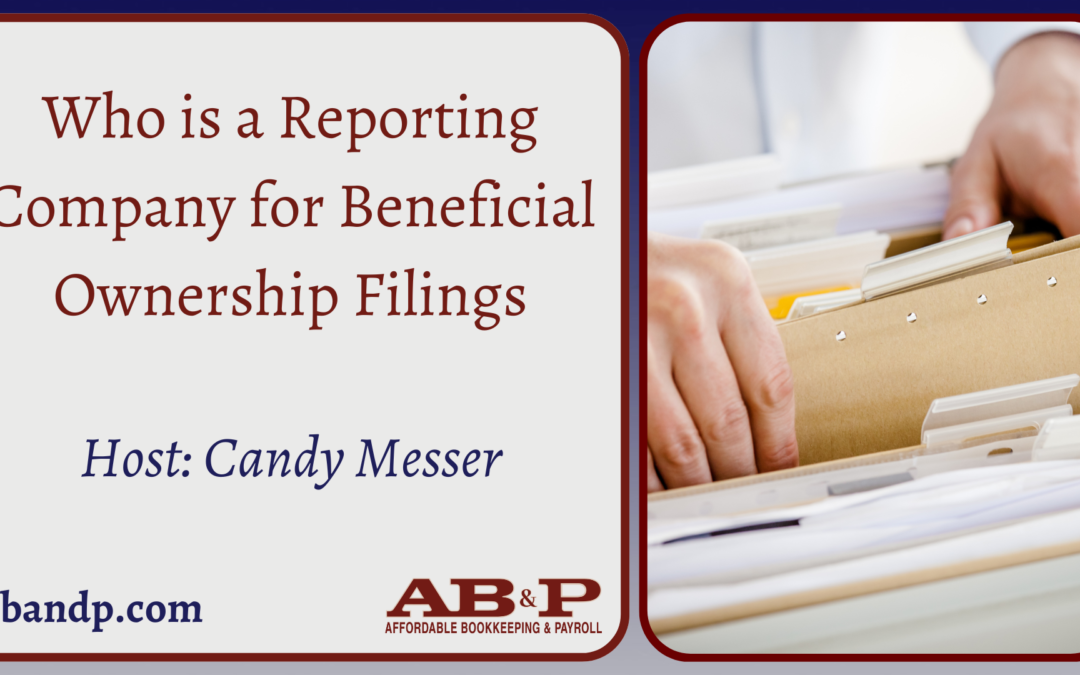Have you heard about Beneficial Ownership Reporting and wondered if you fall under the mandatory filing requirement? There is a lot of confusion around this topic, and I am going to record a video series to explain various aspects to help answer these questions. I recently recorded a podcast episode explaining who is required to file, what information must be shared, and the penalties for failing to do so on time.
In this series, I am going to discuss who is a reporting company, how to identify beneficial owners, the minor child exception, and trustees as beneficial owners.
In today’s video, I’m going to share some information to help guide you to know if you must report beneficial ownership as a reporting company.
Understanding whether your company is a reporting company is crucial for ensuring you meet your compliance obligations if it applies to you.
A company is classified as a “reporting company” if it meets the criteria for either a domestic or foreign reporting company and does not qualify for an exemption. Let me give a little more information on each.
A domestic reporting company is any entity that is created by filing a document with a secretary of state or similar office under the law of a State or Indian Tribe. This includes corporations, limited liability companies (LLCs), and similar entities.
A foreign reporting company is any entity that is formed under the law of a foreign country and registered to do business in any State or Tribal jurisdiction by filing a document with a secretary of state or similar office.
There are specific exemptions. If your company fits any of these, it is not required to report. There are 23 types of exempt entities, including:
- Securities reporting issuers
- Governmental authorities
- Banks
- Credit unions
- Depository institution-holding companies
- Money services businesses
- Brokers or dealers in securities
- Investment companies or investment advisers
- Venture capital fund advisers
- Insurance companies
- Public Utilities
- Large operating companies
- Tax-exempt entities
- Subsidiaries of certain exempt entities
- Inactive entities
These types of businesses often have other regulatory requirements to file information with government agencies, so the BOI reporting is not required in these instances.
To determine if your company is a reporting company, follow these steps:
- Check if it is a domestic or foreign entity as described.
- Review the list of exemptions to see if your company qualifies for any. If it does, it is not required to report.
- If your company does not qualify for any exemptions and meets the criteria of a domestic or foreign reporting company, it must comply with the BOI reporting requirements.
Understanding whether your company is a reporting company is essential for regulatory compliance. If your company needs to report, you must provide the necessary information to FinCEN to meet BOI reporting requirements. Failure to do so can result in hefty fines.
If you need assistance with submitting this report, we are here to help! Reach out to us at 310-534-5577 or contact@abandp.com. We’ll get the information we need to submit and make sure you are in compliance!
